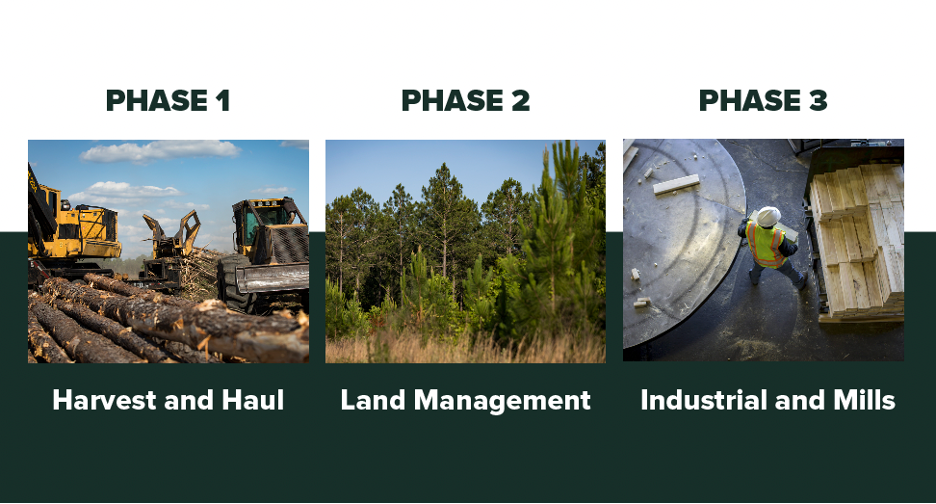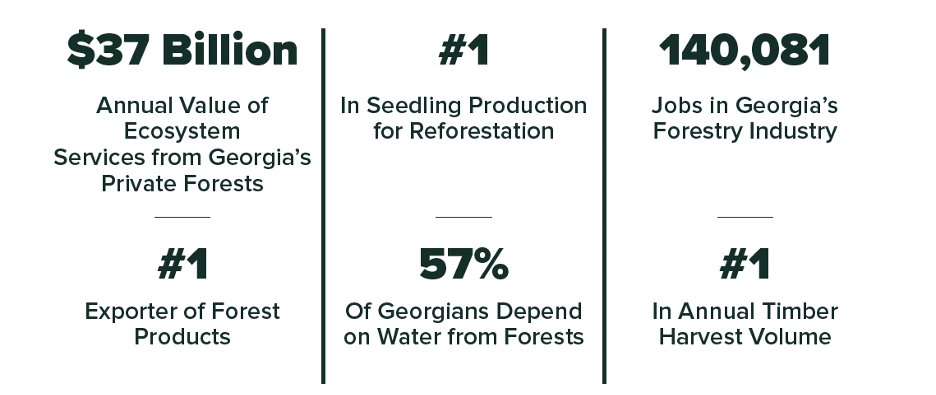Georgia’s forestry sector is amid an industry-wide labor crisis. The Georgia Forestry Foundation (GFF) is partnering with the University of Georgia’s Carl Vinson Institute of Government to identify the labor needs of the forestry sector–how many workers are needed where, and when. GFF plans to build upon the results of the labor market study and dig deeper into workforce development.
Not only will the study identify current workforce issues, but it will also help forestry prepare for future obstacles by projecting its labor needs out five years. With this partnership, GFF is facilitating the long-lasting success of Georgia’s forestry industry.
“Labor challenges are a crucial pain point for every sector of the state’s forestry supply chain, and there is grave potential for long-term impacts if we do not take action,” GFF President & CEO Andres Villegas said. “We understand the importance better understanding the forestry industry’s needs so that we will be better equipped to strategically address these issues.”
Rebecca Hunt, Public Service Faculty at the Carl Vinson Institute, leads the team that will conduct the study in three phases. The phases are based on the three primary job clusters within the forestry sector: Harvest and Haul, Land Management and Industrial and Mills. Hunt and her team will conclude each phase of the project with a brief summary detailing the results. The team’s research is expected to be completed by the end of 2022. Initial findings from phase one (Harvest and Haul) were shared at the Georgia Forestry Association (GFA) Conference in late July.
LABOR STUDY RESEARCH PROCESS

Georgia’s forestry labor pressures are not uncommon – nearly every industry in Georgia and across most of the country is facing a labor shortage right now. However, few have experienced it to the degree the forest industry has since even before the pandemic hit the state.
The industry is uniquely experiencing an aging population – 33.4% percent of the current forestry workforce is over the age of 54 compared to 12.7% for all industries in Georgia. The forestry workforce requires a variety of skill levels including on the job training, short term programs and post-secondary credentials. The solution to forestry workforce issues is not simple or universal.
But this is also true: Georgia holds the title of “#1 Forestry State in the Nation.” For generations, Georgia’s private forest landowners have turned trees into jobs and economic output—while cleaning the state’s air and water in the process.
SNAPSHOT: GEORGIA’S FORESTRY SECTOR

“We are the number one forestry state in the nation. We grow more, plant more, harvest more than any other state,” said Vice President Nick DiLuzio. “Without people, we can’t do any of those things. It’s critical to the success of the state that we have the loggers to fell the trees, truckers to transport the timber, mill operators to process the lumber, and foresters to continue to manage forests for the long-term sustainability of forests in Georgia.”
Hunt agrees that GFF’s workforce study is unique. In a recent conversation with GFF’s team, Hunt remarked that when her team began their research with a literature review of other similar studies, they did not find any reports of this scope and scale from other states.
“It’s pretty unique to have an organization that can undertake such large-scale work for an entire industry and be strategic about workforce development at the state level,” said Hunt.
Each phase of this research project will give GFF insight into the labor needs of a different crucial sector of the forestry industry. The results from the study will inform GFF’s strategic workforce development plans. Critically, results from the study will allow GFF to gear GFA to strategically address the specified labor challenges.
Industry investment and partnership in this project is essential to its impact, “Workforce and talent development is a long-term proposition, and it requires a lot of this intentional effort and partnership right now,” said Hunt.
Please direct questions to Vice President Nick DiLuzio at nick@gffgrow.org.
Thanks to the Langdale Company, the J.M. Huber Corporation, Gay Wood Co, The Westervelt Company, F&W Forestry, Rayonier Advanced Materials, Rayonier, Interfor Corporation, Beasley Forest Products and DS Smith the labor study is fully funded.
LEARN MORE
Watch the video below to hear the preliminary results of the study from Rebecca Hunt as a part of the Georgia Forestry Association’s Annual Conference on July 30, 2022 in Jekyll Island.
